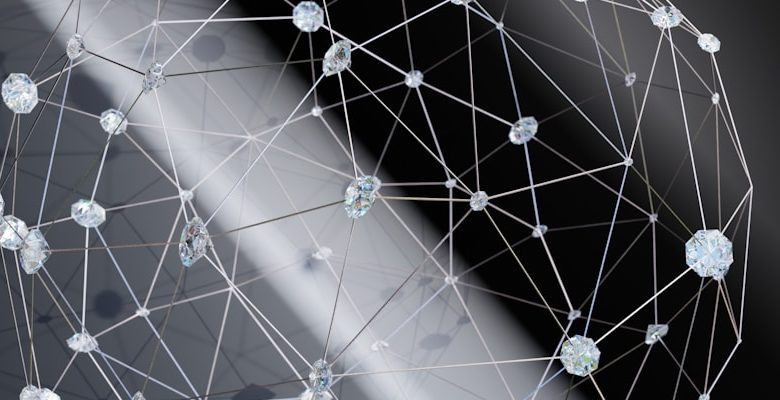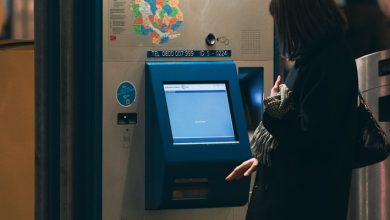The Role of Decentralized Oracles in Connecting Blockchains to Real-World Data

- Understanding Decentralized Oracles and Their Importance in the Blockchain Ecosystem
- Exploring the Mechanisms Behind Decentralized Oracles and Their Role in Smart Contracts
- The Significance of Reliable Real-World Data in Blockchain Applications
- How Decentralized Oracles Ensure Trust and Accuracy in Data Feeds for Blockchains
- Challenges and Opportunities in Implementing Decentralized Oracles for Seamless Data Integration
- Future Implications of Decentralized Oracles in Enabling Cross-Chain Communication and Interoperability
Understanding Decentralized Oracles and Their Importance in the Blockchain Ecosystem
Understanding decentralized oracles is crucial for grasping the significance of their role in the blockchain ecosystem. Decentralized oracles act as bridges between blockchain smart contracts and real-world data, enabling the seamless flow of information onto the blockchain. This connection is essential for decentralized applications (dApps) to access external data sources, such as market prices, weather conditions, or sports scores, which are vital for their functionality.
Decentralized oracles play a pivotal role in ensuring the accuracy and reliability of data on the blockchain. By aggregating information from multiple sources and using consensus mechanisms, decentralized oracles help to validate the authenticity of the data before it is integrated into smart contracts. This process enhances the security and trustworthiness of dApps, reducing the risk of manipulation or tampering with the data.
Moreover, decentralized oracles contribute to the decentralization of the blockchain ecosystem by eliminating single points of failure. Traditional oracles controlled by a single entity can be vulnerable to censorship, manipulation, or downtime, jeopardizing the integrity of the data. In contrast, decentralized oracles operate on a network of nodes, ensuring that data feeds are robust, resilient, and resistant to malicious attacks.
Exploring the Mechanisms Behind Decentralized Oracles and Their Role in Smart Contracts
Decentralized oracles play a crucial role in ensuring that smart contracts can securely interact with real-world data. By exploring the mechanisms behind these decentralized oracles, we can better understand how they facilitate the connection between blockchains and external information sources.
One of the key functions of decentralized oracles is to act as a bridge between on-chain and off-chain data. This is achieved through a network of nodes that retrieve, verify, and deliver external data to smart contracts in a secure and trustless manner. By using cryptographic proofs and consensus mechanisms, decentralized oracles can ensure the integrity and accuracy of the data being fed into the blockchain.
Another important aspect of decentralized oracles is their ability to provide various data types to smart contracts. This can include anything from price feeds and weather updates to sports scores and election results. By tapping into a wide range of data sources, decentralized oracles enable smart contracts to execute based on real-time information, making them more versatile and responsive to changing conditions.
Furthermore, decentralized oracles help mitigate the issue of data manipulation and tampering. By leveraging multiple independent sources and aggregating their inputs, decentralized oracles can reduce the risk of malicious actors manipulating the data to their advantage. This enhances the security and reliability of smart contracts, making them more resilient to external attacks.
In conclusion, decentralized oracles are a critical component in the evolution of blockchain technology. By providing a secure and efficient way to connect smart contracts with real-world data, decentralized oracles expand the capabilities of blockchain applications and open up new possibilities for decentralized finance, supply chain management, and beyond.
The Significance of Reliable Real-World Data in Blockchain Applications
Reliable real-world data is crucial for the successful functioning of blockchain applications. Without accurate and trustworthy data, blockchain networks cannot make informed decisions or execute smart contracts effectively. This is where decentralized oracles come into play, acting as the bridge between the blockchain and external data sources.
By providing a secure and decentralized way to feed real-world data into blockchain networks, oracles enable smart contracts to interact with events and transactions in the physical world. This connection is essential for a wide range of applications, including decentralized finance, supply chain management, and identity verification.
Without reliable real-world data, blockchain applications would be limited in their scope and effectiveness. Decentralized oracles help to ensure the integrity and accuracy of the data being used, safeguarding against tampering or manipulation. This is essential for maintaining trust and transparency within blockchain networks, ultimately leading to increased adoption and innovation in the space.
How Decentralized Oracles Ensure Trust and Accuracy in Data Feeds for Blockchains
Decentralized oracles play a crucial role in connecting blockchains to real-world data by ensuring trust and accuracy in data feeds. These oracles act as bridges between on-chain and off-chain data sources, providing blockchain smart contracts with access to external information.
One of the key benefits of decentralized oracles is their ability to enhance the security and reliability of data inputs on the blockchain. By using a decentralized network of independent nodes to fetch and verify data, decentralized oracles reduce the risk of data manipulation or tampering.
Furthermore, decentralized oracles help to prevent single points of failure by distributing data retrieval and validation tasks across multiple nodes. This decentralized approach not only enhances the resilience of data feeds but also increases the overall trustworthiness of the information being accessed by smart contracts.
By leveraging cryptographic techniques such as digital signatures and zero-knowledge proofs, decentralized oracles can ensure the authenticity and integrity of data feeds. This cryptographic verification process helps to validate the accuracy of the data being provided to the blockchain, further enhancing trust in the information.
In conclusion, decentralized oracles are essential components in the blockchain ecosystem, enabling secure and reliable access to real-world data. By ensuring trust and accuracy in data feeds, decentralized oracles play a vital role in expanding the capabilities of smart contracts and driving the adoption of blockchain technology across various industries.
Challenges and Opportunities in Implementing Decentralized Oracles for Seamless Data Integration
Implementing decentralized oracles for seamless data integration presents both challenges and opportunities for connecting blockchains to real-world data. One of the main challenges is ensuring the security and reliability of the data being fed into the blockchain. Decentralized oracles need to be able to verify the authenticity of the data from various sources to prevent manipulation or tampering.
Another challenge is achieving consensus among different oracles to ensure the accuracy of the data being integrated. This requires a robust governance mechanism to resolve disputes and discrepancies that may arise. Additionally, the scalability of decentralized oracles is a key challenge, as they need to handle a large volume of data efficiently without compromising on speed or performance.
Despite these challenges, there are also significant opportunities in implementing decentralized oracles. By connecting blockchains to real-world data in a seamless manner, decentralized oracles can unlock new possibilities for smart contracts and decentralized applications. They can enable automation of processes that require external data inputs, such as supply chain management or insurance claims.
Furthermore, decentralized oracles can help bridge the gap between the digital and physical worlds, opening up new use cases and applications for blockchain technology. By providing a secure and reliable way to access external data, decentralized oracles have the potential to revolutionize industries such as finance, healthcare, and logistics.
Future Implications of Decentralized Oracles in Enabling Cross-Chain Communication and Interoperability
Decentralized oracles play a crucial role in enabling cross-chain communication and interoperability among different blockchain networks. By connecting blockchains to real-world data sources, decentralized oracles facilitate the seamless exchange of information and value across various decentralized platforms. This technology opens up new possibilities for developers to create innovative decentralized applications that can leverage data from external sources in a trustless and secure manner.
One of the future implications of decentralized oracles is the ability to bridge the gap between different blockchain ecosystems, allowing them to interact and transact with each other more efficiently. This interoperability is essential for the growth and scalability of the blockchain industry as a whole, as it enables seamless communication between disparate networks. Decentralized oracles act as the middlemen that facilitate this communication, ensuring that data is accurately and securely shared across different chains.
Furthermore, decentralized oracles can also help address the issue of scalability that currently plagues many blockchain networks. By offloading data processing and validation tasks to external oracles, blockchains can significantly improve their performance and throughput. This can lead to faster transaction speeds, lower fees, and overall better user experience for decentralized applications. Decentralized oracles are thus poised to play a key role in the future development of the blockchain ecosystem, enabling new use cases and driving innovation in the industry.
In conclusion, the future of decentralized oracles in enabling cross-chain communication and interoperability is bright. As blockchain technology continues to evolve and mature, decentralized oracles will become increasingly important in connecting different networks and expanding the capabilities of decentralized applications. By bridging the gap between blockchains and real-world data, decentralized oracles are paving the way for a more interconnected and versatile blockchain ecosystem.



